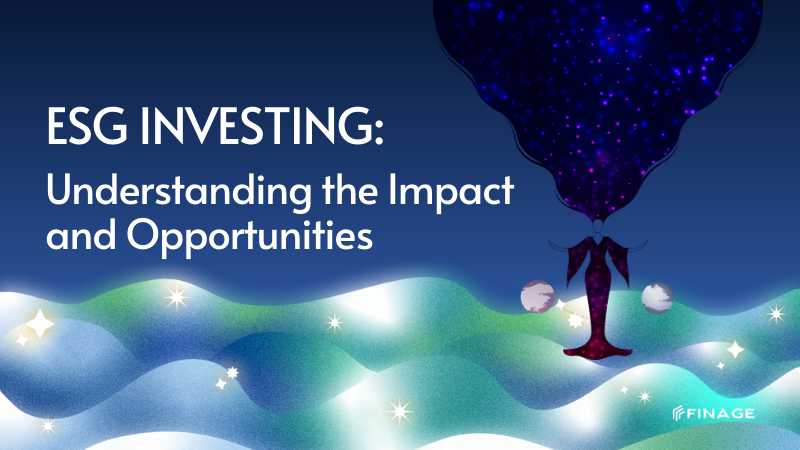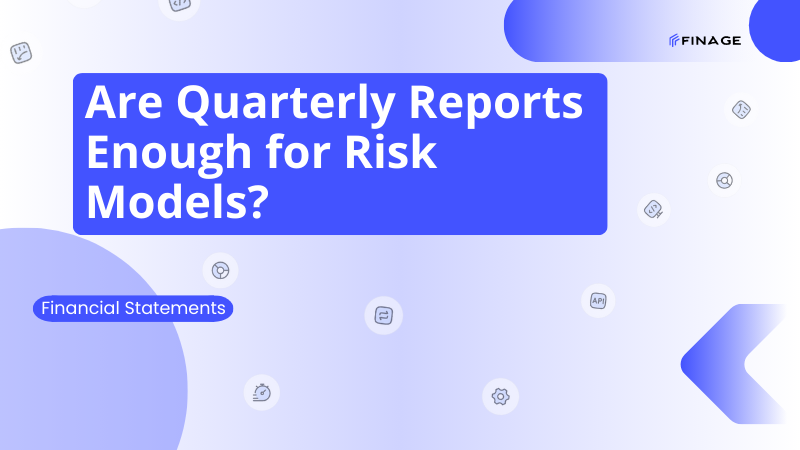ESG Investing: Understanding the Impact and Opportunities
5 min read • January 19, 2024

Introduction
Environmental, Social, and Governance (ESG) investing has swiftly gained prominence as a pivotal factor in the global financial domain. This investment strategy assesses not only the financial performance of a company but also its ethical footprint and sustainability efforts. ESG factors encompass a broad spectrum of criteria, including a company's carbon footprint, labor practices, diversity and inclusion policies, board diversity, and adherence to ethical business standards. Investors are increasingly recognizing that considering these non-financial aspects can offer a more comprehensive evaluation of a company's long-term prospects and risks.
The rise of ESG investing marks a significant shift in the investment landscape, compelling companies to prioritize sustainable practices and social responsibility. Firms are becoming more aware that integrating ESG principles into their operations isn't merely a moral obligation but also a strategic advantage. Companies embracing ESG frameworks tend to attract socially conscious investors, gain competitive advantages, foster innovation, and mitigate various risks, including regulatory, reputational, and operational. As a result, the investment world is witnessing a transformation where sustainability and ethical considerations are becoming integral components of investment decisions.
This paradigm shift towards ESG investing presents a myriad of opportunities for both investors and companies. Investors seeking to align their portfolios with their values find ESG investing a compelling avenue to generate financial returns while contributing positively to society and the environment. Simultaneously, companies embracing ESG principles can access a broader investor base, enhance their brand reputation, foster resilience, and drive long-term growth. The synergy between responsible investing and corporate sustainability not only benefits financial stakeholders but also contributes to a more sustainable and equitable world.
Table of Contents
- What is ESG Investing?
- Definition and Components
- Evolution of ESG Investing
- The Importance of ESG Criteria
- Environmental Considerations
- Social Responsibility
- Governance Factors
- ESG Investing and Financial Performance
- Risk Mitigation
- Long-term Value Creation
- Market Trends in ESG Investing
- Growth of ESG Funds
- Impact on Corporate Policies
- Challenges in ESG Investing
- Measuring ESG Impact
- Standardization and Transparency
- Opportunities for Investors and Companies
- Investment Opportunities
- Corporate Benefits
- The Future of ESG Investing
- Regulatory Changes
- Expanding Scope and Influence
- Conclusion
What is ESG Investing?
Definition and Components
ESG investing involves making investment decisions based on a company's environmental, social, and governance practices, along with traditional financial analysis. It reflects a growing interest in sustainable and ethical investing.
Evolution of ESG Investing
The concept has evolved from the simple exclusion of “sin stocks” to a complex integration of ESG factors in investment analysis, reflecting a deeper understanding of how these factors impact long-term risk and returns.
The Importance of ESG Criteria
Environmental Considerations
Environmental criteria look at how a company performs as a steward of the natural environment. This includes issues like climate change, resource depletion, and waste management.
Social Responsibility
Social criteria examine how a company manages relationships with its employees, suppliers, customers, and communities. It includes aspects like labor standards, diversity, and community engagement.
Governance Factors
Governance involves leadership, executive pay, audits, internal controls, and shareholder rights. Good governance ensures a company uses accurate and transparent accounting methods and avoids conflicts of interest.
ESG Investing and Financial Performance
Risk Mitigation
Incorporating ESG factors can help investors identify and mitigate risks that might not be evident through traditional financial analysis.
Long-term Value Creation
Companies with strong ESG profiles are often better positioned for long-term success, as they are likely to be more resilient and adaptable to changing environmental and social landscapes.
Market Trends in ESG Investing
Growth of ESG Funds
There has been a significant increase in the number of ESG-focused funds and the amount of assets under management in ESG portfolios.
Impact on Corporate Policies
Growing interest in ESG investing is prompting companies to enhance their practices in these areas to attract investment.
Challenges in ESG Investing
Measuring ESG Impact
One of the main challenges is the difficulty in measuring and comparing ESG impact, due to a lack of standardized metrics and reporting practices.
Standardization and Transparency
There is a need for more standardized and transparent ESG reporting to facilitate accurate assessments and comparisons.
Opportunities for Investors and Companies
Investment Opportunities
ESG investing opens up opportunities for investors to support companies that align with their values, while also seeking financial returns.
Corporate Benefits
For companies, strong ESG practices can attract investment, enhance brand reputation, and drive innovation and long-term sustainability.
The Future of ESG Investing
Regulatory Changes
Increasing regulatory focus on sustainability and ethical practices is likely to further drive the integration of ESG factors in investment decision-making.
Expanding Scope and Influence
The scope of ESG factors is expanding to include a wider range of issues, reflecting evolving societal values and expectations.
Conclusion
ESG (Environmental, Social, and Governance) investing has emerged as a transformative force within the investment landscape, challenging the conventional approach by introducing a comprehensive assessment of companies' performance and worth. This innovative methodology extends beyond traditional financial metrics, incorporating considerations of a company's environmental impact, social responsibility initiatives, and governance practices. As ESG criteria continue to gain traction, they offer a paradigm that aligns financial objectives with ethical and sustainability goals. This shift presents an array of opportunities for investors seeking to integrate their financial aspirations with a broader societal and environmental impact.
The evolution of ESG investing heralds an era of multifaceted evaluation, where investors actively seek companies with strong ethical standings and sustainable practices. This trend represents more than a mere market niche; it's a burgeoning movement reshaping the investment landscape. For companies, embracing ESG principles isn't just about appealing to conscientious investors; it's also about demonstrating a commitment to responsible business practices and long-term value creation. As this approach gains momentum, ESG investing offers a collaborative platform where investors and companies converge, aiming for financial success intertwined with meaningful contributions to societal welfare and environmental preservation.
You can get your Real-Time and Historical Market Data with a free API key.
Build with us today!
Claim Your Free API Key Today
Access stock, forex and crypto market data with a free API key—no credit card required.

Stay Informed, Stay Ahead
Finage Blog: Data-Driven Insights & Ideas
Discover company news, announcements, updates, guides and more


